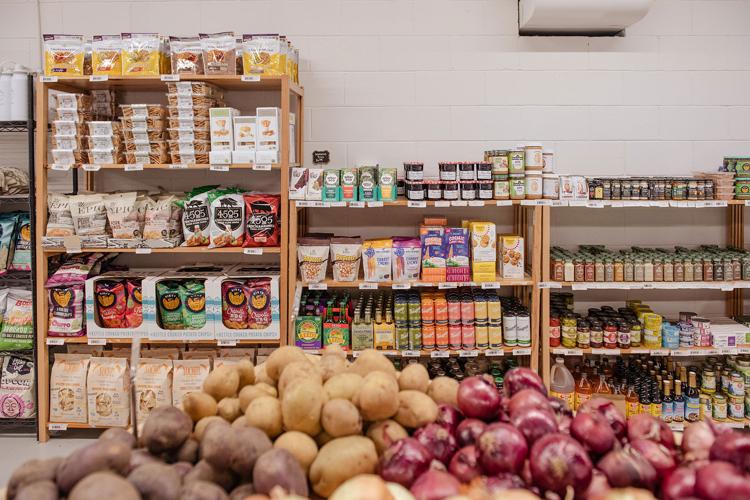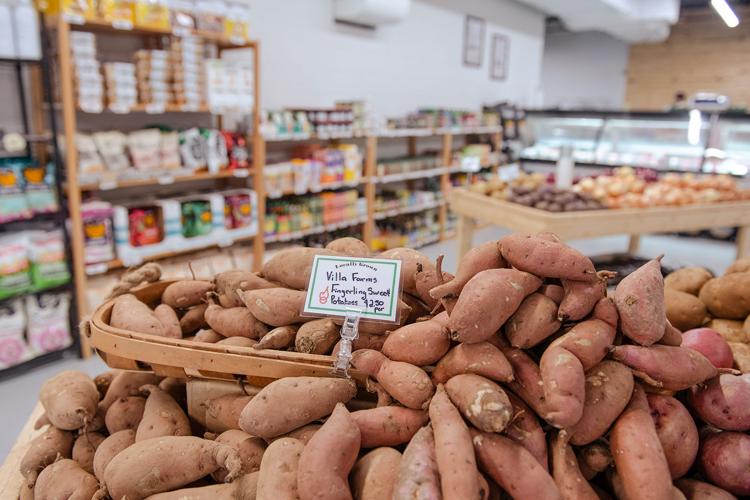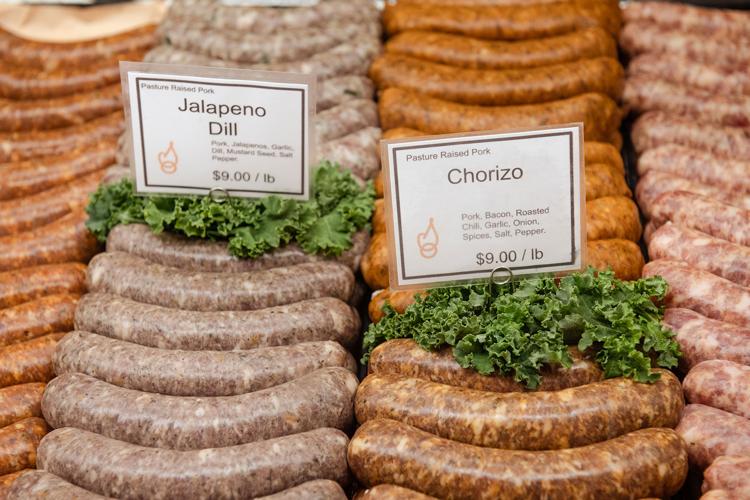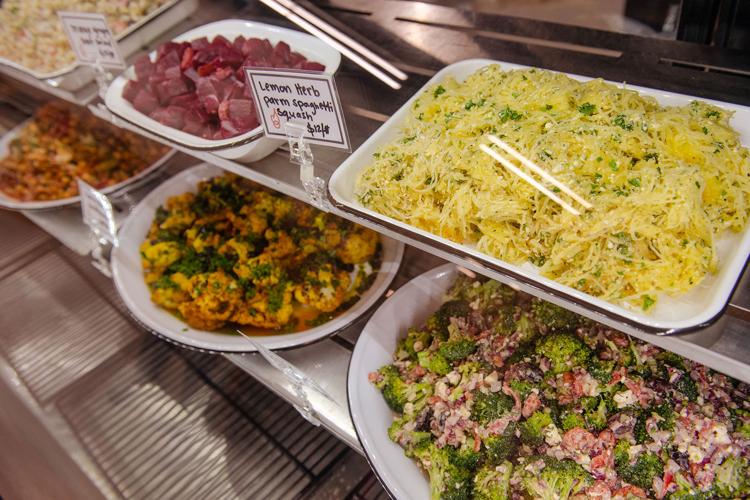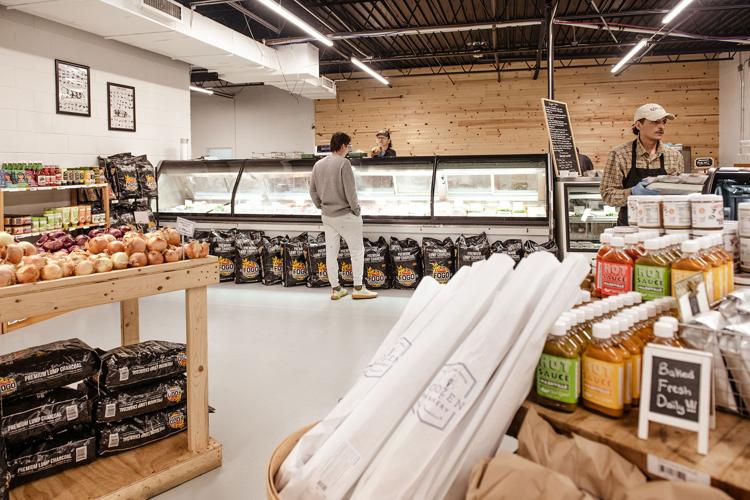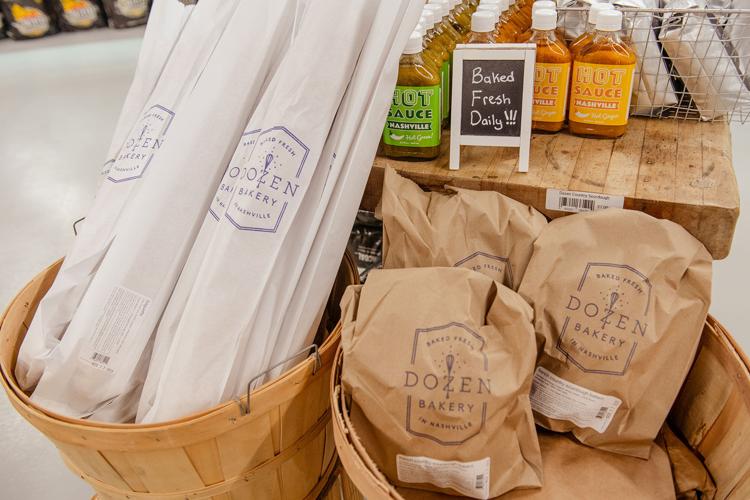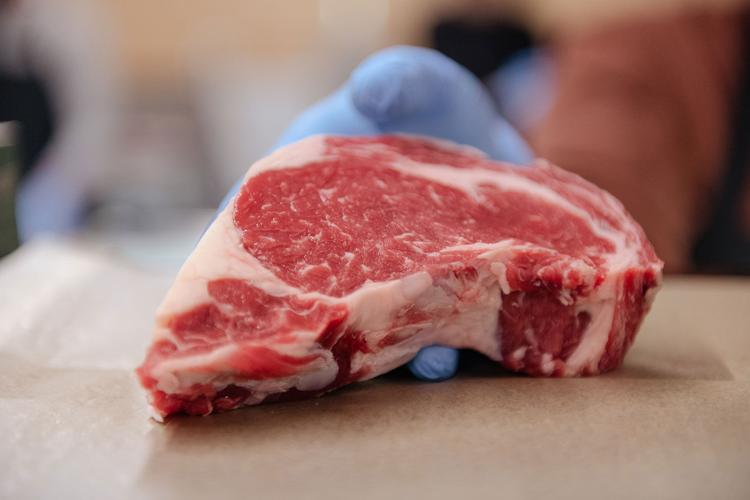With our series At the Market, we’re highlighting some of our favorite farmers market vendors from the Nashville area.
Smokin’ Oaks isn’t a large market, and that’s exactly the point. You won’t find all the items you could buy at big-box grocery stores, but rather a well-curated selection of organic ingredients throughout the grocery, butcher and in-house deli (including plenty of fixings for an excellent meal). At the center of Smokin’ Oaks — and the very reason for its resurrection as a brick-and-mortar market — is the organically fed, pasture-raised meat that comes to the store from the titular farm roughly 30 miles north in Robertson County.
If you’re not sure how to prepare that cut of meat you’re eyeing in the butcher case, just ask the staff at the Melrose-area market (or check the Smokin’ Oaks website for recipes). If you’re not in the mood to cook, lean on Smokin’ Oaks’ deli for a revolving variety of delicious and creatively prepared foods. On a recent weekday afternoon, I was delighted to find a citrus-ginger beet salad with wildflower honey, precooked pot roast meals, take-and-bake pasta dishes and lots more. I ordered a heavenly sandwich consisting of shaved, grass-fed, dry-aged steak, greens, confit garlic and rosemary blue-cheese aioli, and caramelized onions on a ciabatta bun. The flavors were rich and beautifully balanced, but the shaved steak — which is perfectly cooked and velvety-tender — is the star of the sandwich. Unable to stop myself, I also purchased the jalapeño-dill sausage from the butcher case. The deliciously aromatic yet simple blend of pork, jalapeño, garlic, dill, mustard seeds, salt and pepper will pair well with the organic white beans I picked up in the market. When the food is this good, you don’t have to compensate with many other ingredients — the quality speaks for itself.

Smokin’ Oaks owner Justin Head grew up on a conventional farm. Over time, he developed a passion for clean food and organic regenerative farming practices. In 2015, Head started transitioning toward organic farming, and today he has 1,300 acres of certified organic farmland. He raises beef, pork and chicken, and grows the grain that feeds the livestock. He started selling meat at the Nashville Farmers’ Market in 2017, and over time his business spread to other farmers markets across town. When the landscape shifted because of the COVID-19 pandemic, and meat processors started backing up, Head pivoted. He decided to process his own meat and start his own market — this December marks the second anniversary of the brick-and-mortar market.
“We don’t compromise at all,” Head tells the Scene. “If it costs us money, then so be it.”

Indeed, organic foods can be more expensive, but there’s a compelling reason for that.
“When you don’t cheat, and when you treat animals ethically, and when you grow your produce and grains ethically — where you’re not putting poisons on it and killing your soil — you’re not going to get [anywhere] near the yield that you would by using different practices,” says Head.
Head’s business model emphasizes local food, from the meat he raises to the produce grown by nearby farms, and other products like bread from Dozen Bakery. Smokin’ Oaks doesn’t use seed oils, or nitrates for curing meat. Head resists many global food practices that have created significant problems with our environment and economy.
“We’re losing our farm economy,” says Head. “It is so very important to support your local farming and agricultural community to keep all these things alive for many, many, many different reasons.”

